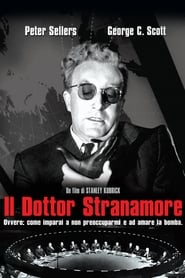The role of George C. Scott resembled that of real life Air Force chief, General Curtis LeMay, the Air Force Chief, who was an advocate of "pre-emptive nuclear war to rid the world of the Soviet threat" [Defense secretary Robert MacNamara recollection] and had once mused aloud to a Washington Post columnist that nuclear war was "inevitable" (in July '61) and "would break out in the final weeks of the year," casually acknowledging that "it would likely incinerate such major U.S. cities as Washington, New York, Philadelphia, Los Angeles, Chicago and Detroit." LeMay, during World War II, made his name by "laying waste to much of Japan with his infamous firebombing campaign." [as reported in 'Brothers: the hidden history of the Kennedy years'; David Talbott, 2007.] Further in referencing this film in this book: the Special Assistant to President Kennedy (Arthur Schlesinger), later recalled that during the Cuban missile crisis time: "Certainly we did not control the Joint Chiefs of Staff," and regarding Kennedy's fears of the military: "Kennedy's concern was not that Khrushchev [the Soviet leader] would initiate something, but that something would go wrong in a Dr. Strangelove kind of way," referring to Stanley Kubrick's film in which a rogue U.S. general starts World War III." [Ibid.]
Scritto da il
05-03-2025 alle ore 09:11
Immagini
Nessun dato in archivio
Consiglia
Voto
Nessun dato in archivio
Commenti
Nessun dato in archivio
Nessun dato in archivio
